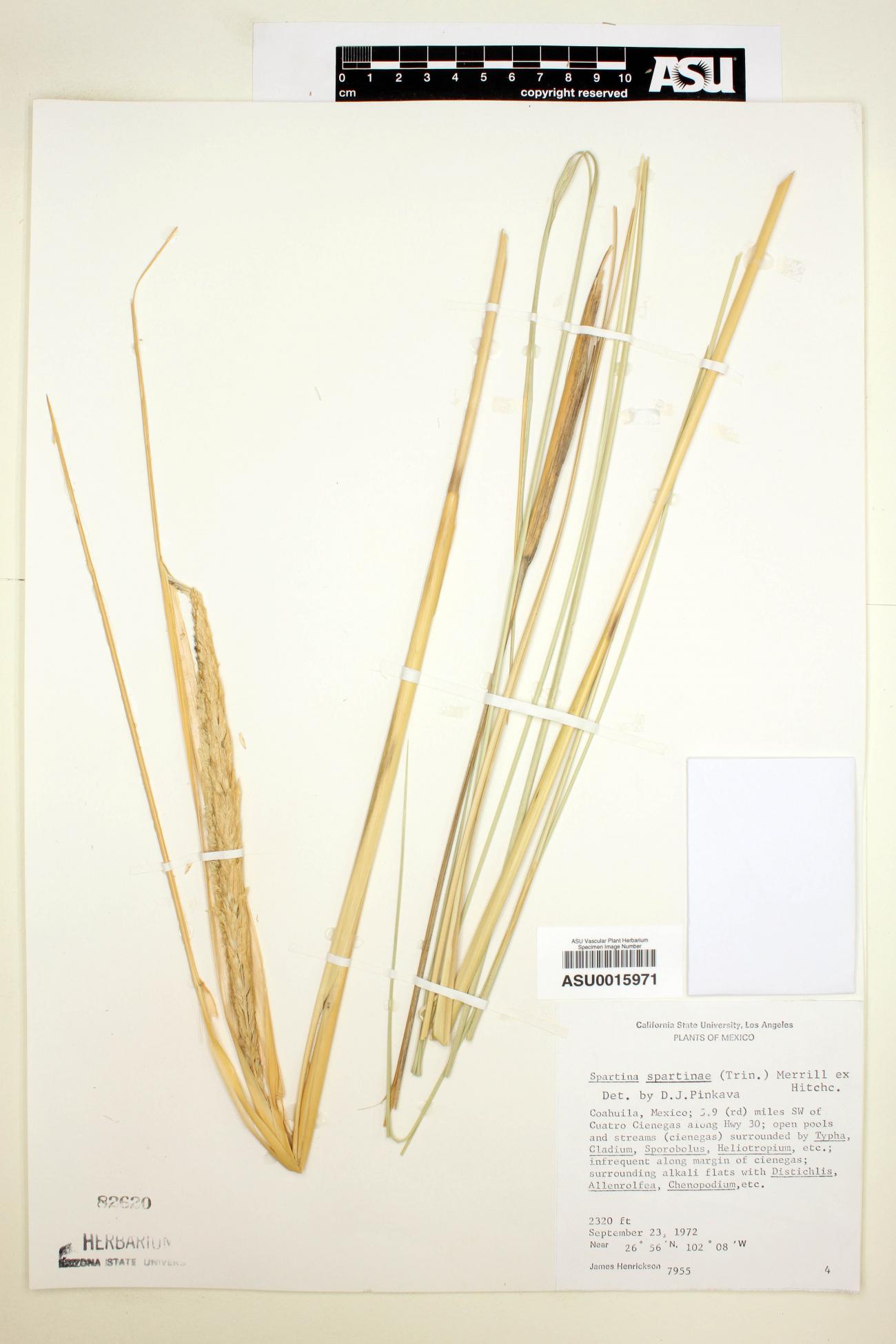Spartina
|
Family: Poaceae |
Plants perennial; cespitose from knotty bases or rhizomatous. Culms 10-350 cm, erect, terete, solitary or in small to large clumps. Leaves mostly cauline; sheaths open, smooth, sometimes striate; ligules membranous, ciliate, cilia longer than the membranous bases; blades flat or involute. Inflorescences terminal, usually exceeding the upper leaves, 3-70 cm, panicles of 1-75 spikelike branches attached to an elongate rachis; branches racemosely arranged, alternate, opposite, or whorled, appressed to strongly divergent, axes 3-sided, spikelets usually sessile on the 2 lower sides, usually divergent to strongly divergent; disarticulation beneath the glumes. Spikelets laterally compressed, with 1 floret. Glumes unequal, strongly keeled; lower glumes shorter than the florets, 1-veined; upper glumes usually longer than the florets, 1-6-veined; lemmas shorter than the paleas, 1-3-veined, midveins keeled, lateral veins usually obscure; paleas thin, papery, 2-veined, obscurely keeled; anthers 3; lodicules sometimes present, truncate, vascularized; styles 2, plumose. Caryopses rarely produced. x = 10. Name from the Greek spartine, a cord made from Spartium junceum, probably applied to Spartina because of the tough leaves. Spikelets 1-fld, strongly flattened, articulated below the glumes, closely or loosely imbricate in 2 rows on 2 sides of a triangular rachis; glumes unequal, narrow, 1-veined, acute, acuminate, or awned, the second (exterior in the spike) exceeding the lemma; lemma firm, keeled, awnless, obscurely veined; palea equaling or usually exceeding the lemma; perennial, usually colonial from stout, scaly rhizomes, with a few to many dense, one-sided spikes appressed to spreading along a common axis; ligule a band of hairs; good seed only sparingly produced. 15, New World and w. Europe and Afr. Gleason, Henry A. & Cronquist, Arthur J. 1991. Manual of vascular plants of northeastern United States and adjacent Canada. lxxv + 910 pp. ©The New York Botanical Garden. All rights reserved. Used by permission. |

